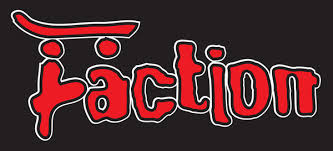记忆方法
1、fact + fiction.
中文词源
faction 派系,派别,内讧
来自词根fact, 做,词源同fact,face. 即做事情的不同人或派别,词义贬义化,指派系等。
英语词源
- faction
-
faction: see fashion
- faction (n.1)
- c. 1500, from Middle French faction (14c.) and directly from Latin factionem (nominative factio) "political party, class of persons," literally "a making or doing," noun of action from past participle stem of facere "to do" (see factitious). In ancient Rome, originally "one of the four teams of contenders for the chariot races in the circus," distinguished by the color of their dress. Later "oligarchy, usurping faction, party seeking by irregular means to bring about a change in government."
A spirit of faction, which is apt to mingle its poison in the deliberations of all bodies of men, will often hurry the persons of whom they are composed into improprieties and excesses for which they would blush in a private capacity. [Hamilton, "The Federalist," No. xv]
- faction (n.2)
- "fictional narrative based on real characters or events, 1967, a blend of fact and fiction.
权威例句
- 1. Faction almost broke up the club.
- 内部纠纷几乎使俱乐部解体.
- 2. Faction and self-interest appear to be the norm.
- 派系之争和自私自利看来非常普遍。
- 3. Faction almost broke up the party.
- 派系纠纷几乎使该党分裂解体.
- 4. The progressive faction demanded a reserve system and currency supply owned and controlled by the government.
- 进步派系要求建立由政府占有和控制的储备制度和货币供应.
- 5. I now understood clearly that I was caught between the king and the Bunam's faction.
- 我现在完全明白自己已陷入困境,在国王与布纳姆集团之间左右为难.

